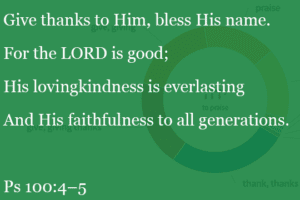The biblical meaning of control is a topic that holds great significance in our lives as believers. In our journey of faith, it is crucial to understand the role of control and how it aligns with God’s plan for us. This article seeks to explore the biblical perspective on control and its implications for our spiritual growth and relationship with God.
As we delve into this subject, we are reminded of
“Trust in the LORD with all your heart and lean not on your own understanding; in all your ways submit to him, and he will make your paths straight.”
Proverbs 3:5-6
This verse reminds us that true control lies in surrendering ourselves to God’s will and trusting Him completely. It encourages us to relinquish our human desire for control and seek divine guidance instead.
Furthermore,
“For my thoughts are not your thoughts, neither are your ways my ways,” declares the LORD. “As the heavens are higher than the earth, so are my ways higher than your ways and my thoughts than your thoughts.”
Isaiah 55:8-9
These verses highlight the vast difference between our limited understanding and God’s infinite wisdom. They reinforce the importance of humbly allowing God to take control, knowing that His plans are far greater than anything we could imagine.
Join us in exploring the biblical meaning of control and discover the peace and freedom that come from surrendering to God’s perfect control over our lives.
The Biblical Meaning of Control: Finding Balance in God’s Plan
In a world where we often feel the need to be in control of every aspect of our lives, it is essential to understand what the Bible teaches about control. As Christians, we are called to surrender ourselves to God’s will and trust in His plan for our lives. Let us explore the biblical meaning of control and how we can find balance in God’s sovereignty.
Understanding God’s Sovereignty
At the core of the biblical understanding of control is the recognition of God’s sovereignty. The Bible repeatedly emphasizes that God is in control of all things and has a perfect plan for each of us. We read in Isaiah 46:10, “I make known the end from the beginning, from ancient times, what is still to come. I say, ‘My purpose will stand, and I will do all that I please.'” This verse reminds us that God’s plans cannot be thwarted, and His purposes will ultimately prevail.
However, this does not mean that we are merely passive participants in God’s plan. God has given us free will and the ability to make choices. He allows us to exercise control over our actions and decisions. Proverbs 16:9 affirms this: “In their hearts, humans plan their course, but the Lord establishes their steps.” Thus, while we have the freedom to make choices, it is God who ultimately directs our paths.
The Illusion of Control
Despite the biblical teachings on God’s sovereignty, many people still fall into the illusion of control. We strive to control every aspect of our lives, believing that it will bring us security and happiness. However, this pursuit often leads to anxiety, stress, and disappointment. The truth is that we are limited in our understanding and unable to predict or control every outcome.
Jesus addresses this human tendency in Matthew 6:27 when He asks, “Can any one of you by worrying add a single hour to your life?” This question challenges us to recognize the futility of trying to control the uncontrollable. Instead, Jesus encourages us to seek God’s kingdom and trust in His provision (Matthew 6:33).
Surrendering Control to God
In order to find true peace and fulfillment, we must learn to surrender control to God. This does not mean that we become passive or apathetic; rather, it is a recognition that God’s ways are higher than our ways (Isaiah 55:9). Surrendering control involves aligning our will with God’s will and trusting in His perfect timing and plan.
Jesus serves as the ultimate example of surrendering control. In the Garden of Gethsemane, He prayed, “Father, if you are willing, take this cup from me; yet not my will, but yours be done” (Luke 22:42). Despite His human desire to avoid suffering, Jesus submitted Himself to the Father’s will. Through His sacrifice, we find redemption and salvation.
Walking in Faith and Trust
To walk in faith and trust, we must cultivate a deep relationship with God through prayer, reading the Bible, and seeking His guidance. Proverbs 3:5-6 offers valuable wisdom: “Trust in the Lord with all your heart and lean not on your own understanding; in all your ways submit to him, and he will make your paths straight.” As we surrender control and submit to God, He promises to guide and direct us.
It is important to note that surrendering control to God does not exempt us from facing challenges or difficult circumstances. However, we can find comfort in knowing that God is with us every step of the way. Romans 8:28 assures us, “And we know that in all things God works for the good of those who love him, who have been called according to his purpose.”
“For I know the plans I have for you,” declares the LORD, “plans to prosper you and not to harm you, plans to give you hope and a future.”
Jeremiah 29:11
The Peace of Letting Go
In conclusion, the biblical meaning of control teaches us the importance of surrendering our lives to God’s sovereignty. The illusion of control only leads to anxiety and disappointment. Instead, by trusting in God’s perfect plan, walking in faith and trust, and letting go of the need to control, we can find true peace and fulfillment. May we seek to align our will with God’s will, knowing that He holds our future in His hands.
Understanding the Biblical Significance of Control: A Brief Insight
In conclusion, the biblical meaning of control reminds us that we are not meant to have absolute power over our lives or the lives of others. Instead, we are called to surrender control to God and trust in His perfect plan. As Proverbs 3:5-6 states, “Trust in the Lord with all your heart and lean not on your own understanding; in all your ways submit to Him, and He will make your paths straight.”
Through various biblical passages, we see that control ultimately belongs to God.
“The Lord has established his throne in heaven, and his kingdom rules over all” Psalms 103:19
. We are reminded that God’s control is rooted in His wisdom, love, and sovereignty. Our role is to humble ourselves before Him and acknowledge that His ways are higher than ours.
Understanding the biblical meaning of control also highlights the importance of seeking God’s guidance in decision-making. We are encouraged to seek His will and align our desires with His plans.
“Commit to the LORD whatever you do, and he will establish your plans” Proverbs 16:3
. This verse emphasizes the significance of surrendering control to God and inviting Him to guide our steps.
Furthermore, recognizing the biblical meaning of control helps us let go of anxiety and fear. We can find peace in knowing that God is in control and that He cares for us.
“Cast all your anxiety on him because he cares for you” 1 Peter 5:7
. This verse reminds us that we can trust God to handle the things that are out of our control and to provide for our needs.
In conclusion, embracing the biblical meaning of control means surrendering our own desires and plans to God, seeking His guidance, and finding peace in His sovereignty. Let us trust in His loving control and have faith that He will lead us on the right path.







